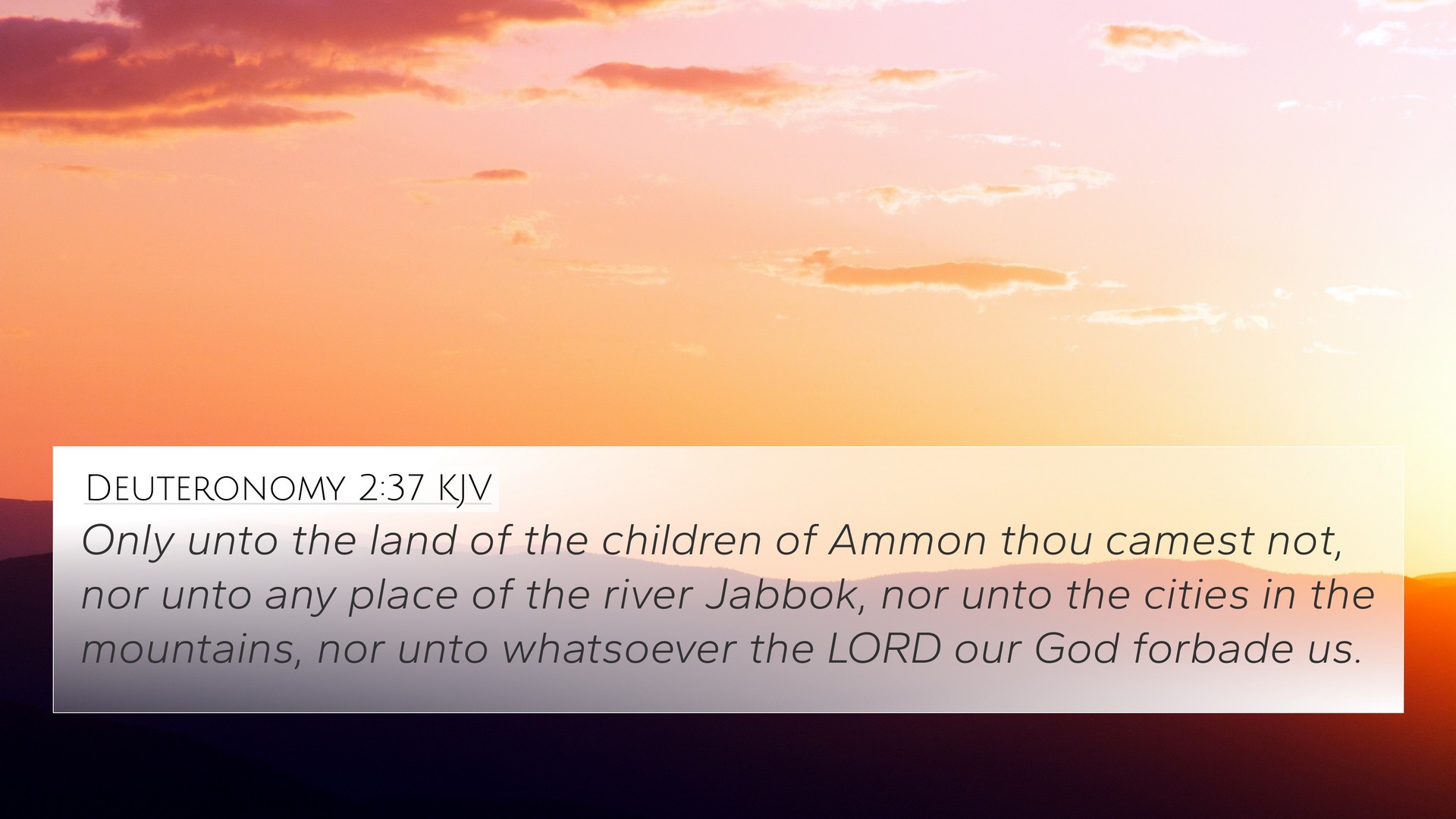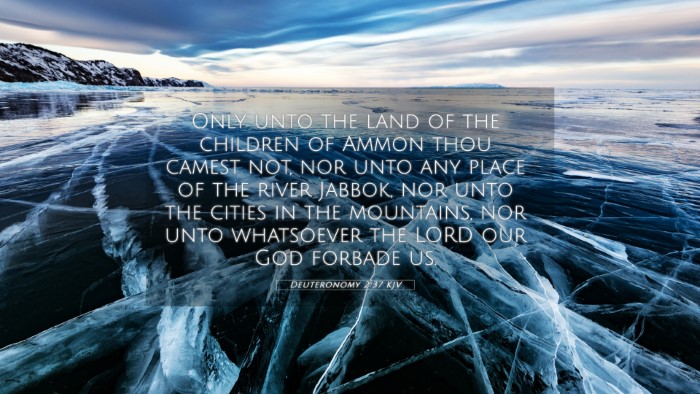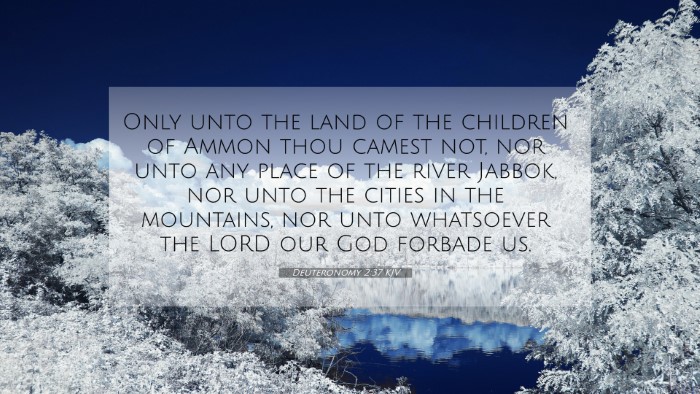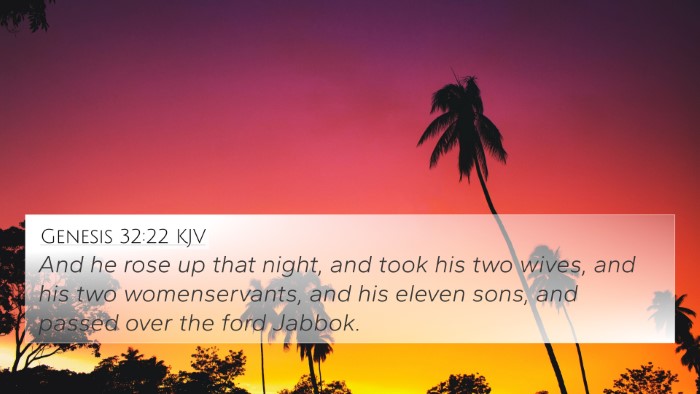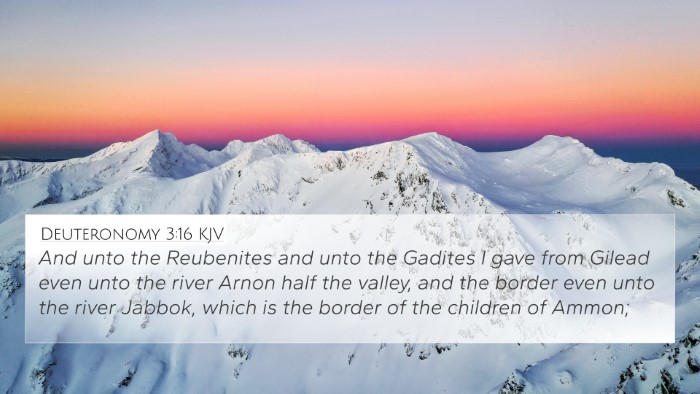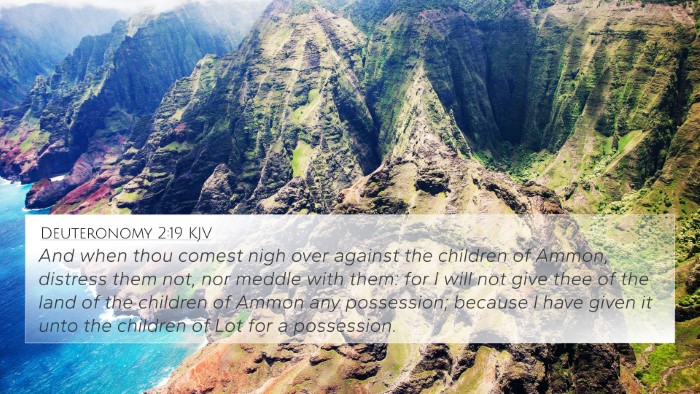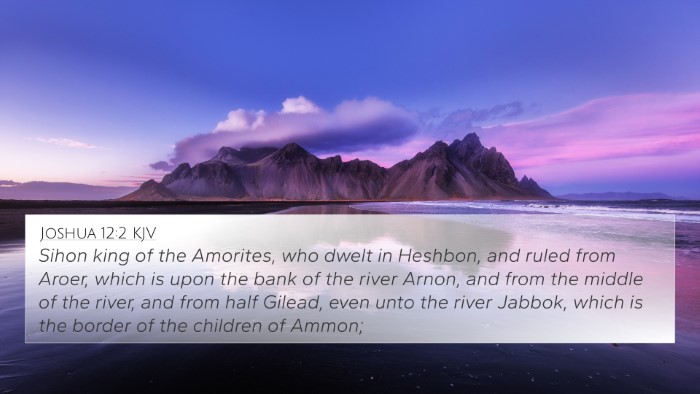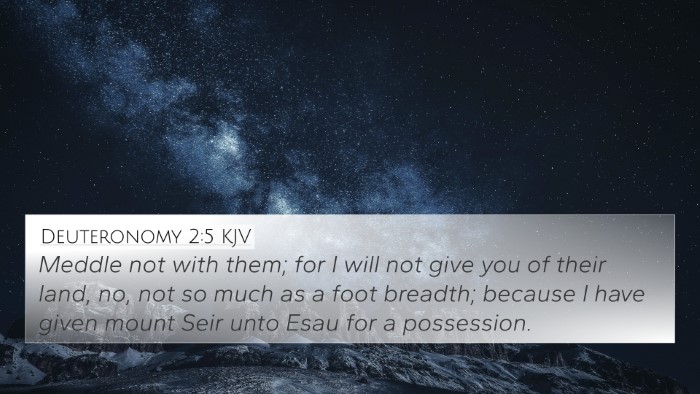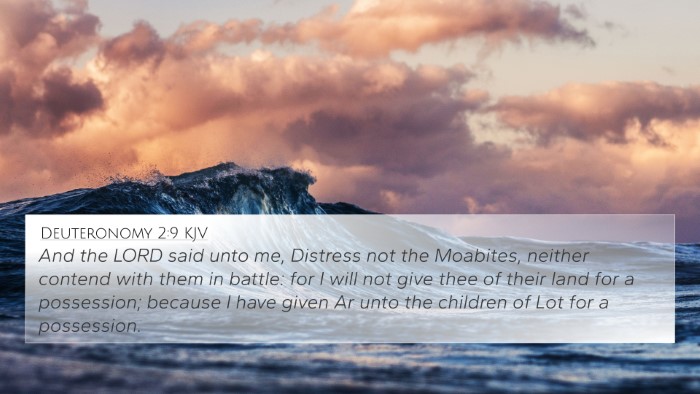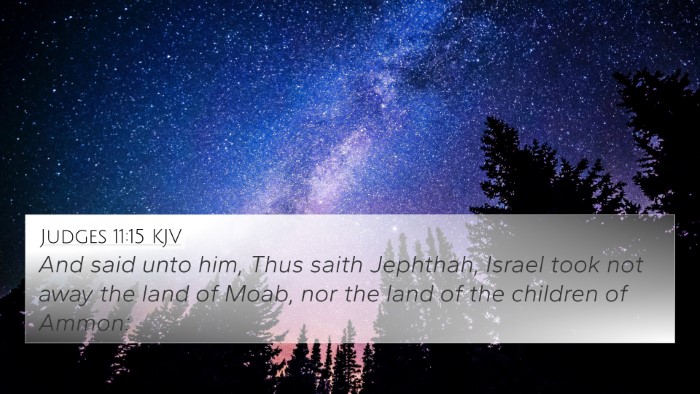Understanding Deuteronomy 2:37
Verse Reference: Deuteronomy 2:37
Text: "But unto the land of the children of Ammon thou camest not, nor unto any place of the children of Ammon, even unto all the river Jabbok, and unto the cities of the mountains, and unto whatsoever the Lord our God forbad us."
Summarized Meaning of Deuteronomy 2:37
In this verse, God instructs the Israelites through Moses, emphasizing the importance of obeying divine commandments regarding territorial boundaries. Specifically, they were instructed not to invade the land of Ammon that God had designated as off-limits. This moment highlights the overarching themes of obedience, respect for God's commands, and the consequences of disregarding divine restrictions.
Insights from Public Domain Commentaries
-
Matthew Henry's Commentary:
Henry articulates that this prohibition reflects God's sovereignty over the lands and nations surrounding Israel. It serves as a warning against the temptation to usurp lands that God has not granted. The verse underscores the necessity of adhering strictly to God's directives to avoid spiritual and physical ramifications.
-
Albert Barnes' Notes:
Barnes elaborates on the significance of the Jabbok river and the geographical contexts, noting the Israelites were reminded of their cautious approach to regions belonging to other nations. He emphasizes that God's people must navigate their journey based on divine ordinances, avoiding areas that could lead to conflict or divine displeasure.
-
Adam Clarke's Commentary:
Clarke interprets this verse as a reminder of Israel’s unique covenant with God. He notes the importance of recognizing limits established by God (e.g., the boundaries of Ammon). Clarke posits this illustrates a broader theme of divine protection for the Ammonites as well, which would ultimately contribute to Israel's integrity before God.
Cross-References for Further Study
The following biblical verses and themes relate closely to Deuteronomy 2:37:
- Genesis 19:36-38: Discusses the origins of the children of Ammon.
- Numbers 21:24: Records Israel's victories over enemy nations, highlighting God's guidance.
- Deuteronomy 3:16: Talks about the land given to the tribes, illustrating the allocated territories.
- Exodus 23:31: Details the boundaries as established by God for the Israelites.
- Joshua 12:4: Mentions kings defeated by Israel, showing the consequence of obedience.
- 1 Samuel 12:9: Reflects on Israel's rebellion and the role of following God's path for success.
- Micah 7:18: Speaks of God's mercy and justice, connecting to His treatment of foreign lands.
Thematic Connections
This verse connects to broader Biblical themes, including:
- Obedience to Divine Commands: Reinforcing that following God's will is crucial for societal and spiritual harmony.
- Theological Sovereignty: Illustrating God's control over not only Israel but the nations surrounding them.
- Biblical Boundaries: Highlighting the importance of respecting God-given limits and territorial rights.
- Divine Protection: Emphasizing the protection God offers to His people by guiding their paths for success.
Applying Cross-Referencing Techniques
For those engaged in Bible study, understanding how to use cross-references can greatly enhance comprehension of complex passages:
- Tools for Bible Cross-Referencing: Utilizing Bible concordances to find related verses efficiently.
- Cross-reference Guide: Following a structured approach to analyze themes across various books.
- How to Use Cross-References: Developing a systematic method of connecting scriptures for deeper insights.
Conclusion
In conclusion, Deuteronomy 2:37 serves as a significant reminder of the imperative nature of divine commandments concerning land and conduct in relationships with surrounding nations. Its connections to other scripture deepen our understanding of God's promises, providing believers with a solid foundation for further exploration of Biblical teachings through inter-Biblical dialogue and thematic connections.
